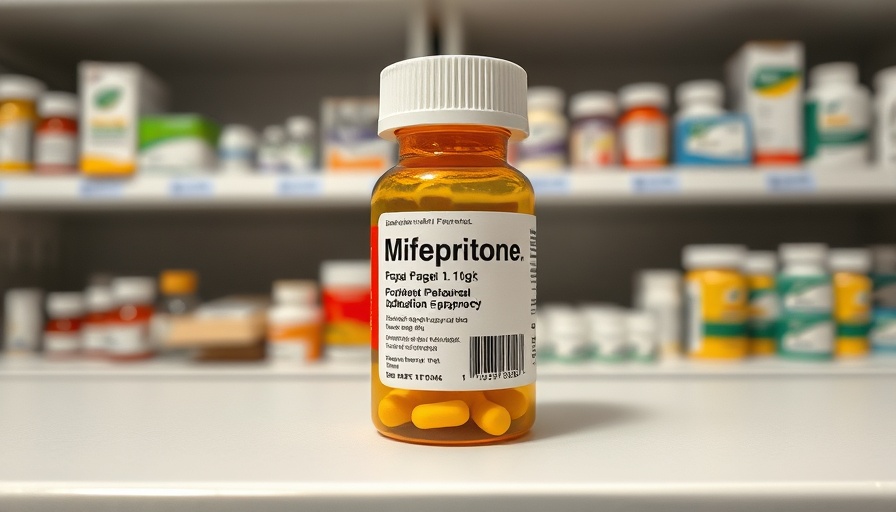
Understanding the Impact of Louisiana's Abortion Pill Warrant
In a significant legal development, Louisiana has issued an arrest warrant for a California doctor accused of mailing abortion pills to a patient in the state. This is a rare move that highlights the growing tension between states with differing views on abortion access, particularly in light of the U.S. Supreme Court's decision to overturn Roe v. Wade. For senior citizens living in Louisiana, this case is not just a legal issue; it highlights broader societal and healthcare trends that affect women and families.
The Case of Rosalie Markezich
The warrant surrounds an incident involving Rosalie Markezich, who states that her then-boyfriend used her email to order mifepristone, the first of the two drugs typically used in medication abortions, from Dr. Remy Coeytaux. Markezich asserts that she did not wish to terminate her pregnancy, but felt coerced into taking the medication. Her story sheds light on the emotional and psychological struggles women face, especially in situations where access to health care is complicated by legal restrictions.
The Broader Context of Medication Abortion
Medication abortion has become a common method for terminating pregnancies in the U.S., accounting for a significant portion of all abortions. Despite the bans on abortion in several states, reports indicate that the number of abortions actually increased recently, largely due to the availability of pills. This indicates an ongoing need for comprehensive education about reproductive health, a topic that deserves attention even among senior citizens who may feel distanced from contemporary debates.
Legal Battles Over Abortion Pills
Louisiana's warrant is part of a larger trend where conservative states are challenging telehealth practices surrounding abortion prescribed medications. The state's Attorney General, Liz Murrill, has positioned this case as a vital step in combating what she labels as illegal practices facilitated by doctors in more liberal states. The broader implications of these legal battles stretch beyond the courtroom and into community conversations about women's health rights and medical access.
Telemedicine: A Double-Edged Sword
The conversation around telemedicine and its implications for reproductive health is especially pertinent. While telehealth services offer increased access to medical advice and prescriptions, they also raise concerns about the potential for coercion in making critical health decisions. For senior citizens in Louisiana, understanding these dynamics is crucial, as they often play a role in family discussions about healthcare and may offer support or advice to younger family members.
Empowerment Through Awareness
As this case unfolds, it is essential to recognize the power of awareness and education. Various organizations emphasize that understanding abortion medication, the legal landscape, and the impact on mental health is vital for all facets of society. As advocates encourage women to know their rights and take charge of their health decisions, it reflects the growing push to empower individuals across generations to engage with vital health issues.
Looking Ahead: The Future of Abortion Rights
Predictions for the future of abortion rights and reproductive health in the U.S. suggest ongoing conflicts between states with differing legal frameworks. The potential rise in legal actions against healthcare providers in states with more permissive laws raises questions about how these challenges will evolve. Senior citizens, often the backbone of family units, might find themselves in positions of mentoring or advising younger generations who need guidance navigating these complex issues.
In conclusion, as Louisiana takes steps to address perceived illegal actions concerning abortion pills, it serves as a reminder that the conversation surrounding women’s health is evolving rapidly. For senior citizens in Louisiana, staying informed about how these legal battles impact not only women's health but also societal views and family dynamics is imperative. Understanding these trends will empower citizens to engage more thoughtfully and effectively in discussions about healthcare in their communities.
 Add Row
Add Row  Add
Add 



Write A Comment